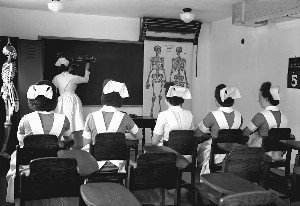Rini Dewi Andriani, Masruroh Lubis
Analysis of Holistic Evaluation Model Implementation in the Islamic Education Curriculum at Islamic Higher Education Institutions
Introduction
Analysis of holistic evaluation model implementation in the islamic education curriculum at islamic higher education institutions. Analyze CIPP holistic evaluation in Islamic higher education curricula. Balance academic achievement with moral, spiritual, and character development, producing graduates with integrity and ethics.
Abstract
This research departs from the problem of the less than optimal application of a comprehensive evaluation model in measuring the success of the Islamic education curriculum in Islamic universities. The existing evaluation still focuses on academic achievement, while the moral, spiritual, and character building aspects of students have not been adequately assessed. This condition causes the goal of holistic Islamic education has not been achieved as a whole. This research was conducted in three universities, namely STAI Al-Hikmah Medan, STAI Al-Hikmah Tebing Tinggi, and STIT Al-Washliyah Binjai, with the aim of analyzing the strengths and weaknesses of the implementation of the CIPP holistic evaluation model in each dimension—Context, Input, Process, and Product. The results showed that synergy between dimensions is the key to successful implementation of this model. When the context and input are strengthened and the learning process runs effectively, the educational outcomes are not only academically superior, but also shape the character and spirituality of students according to Islamic values. The implications of this research emphasize the need to develop an evaluation system that is oriented towards the balance between intellectual achievement and the formation of moral-spiritual values, so that Islamic universities are able to produce graduates with integrity, ethics, and contribute positively to society.
Review
This research, titled "Analysis of Holistic Evaluation Model Implementation in the Islamic Education Curriculum at Islamic Higher Education Institutions," addresses a critically important and often overlooked area within educational assessment. The stated problem—the inadequacy of current evaluation models that predominantly focus on academic achievement to the neglect of moral, spiritual, and character development—resonates deeply with the overarching goals of Islamic education. This study's focus on bridging this gap by exploring the implementation of a comprehensive evaluation model, specifically the CIPP model, is highly commendable and timely, offering valuable insights into how Islamic higher education institutions can better fulfill their holistic mission. Methodologically, the research employs a case study approach across three distinct Islamic higher education institutions, which provides a rich comparative basis for understanding diverse implementation challenges and successes. The detailed analysis through the CIPP framework (Context, Input, Process, and Product) is a robust choice for evaluating complex educational systems. The key finding that "synergy between dimensions is the key to successful implementation" is particularly insightful, underscoring that effective holistic evaluation is not merely about adding new metrics but about integrating all aspects of the educational ecosystem. This synergy, as the abstract highlights, directly leads to outcomes that combine academic superiority with strong character and spiritual formation. The implications drawn from this research are significant and far-reaching. By emphasizing the necessity of developing an evaluation system balanced between intellectual achievement and moral-spiritual values, the study offers a clear roadmap for Islamic universities aspiring to produce well-rounded graduates. Such graduates, equipped with integrity, ethics, and a positive societal contribution, are precisely what holistic Islamic education aims to cultivate. This work has the potential to guide policy and practice in curriculum development and assessment, making a substantial contribution to the field of Islamic education studies and offering a model for other faith-based educational systems seeking similar holistic outcomes.
Full Text
You need to be logged in to view the full text and Download file of this article - Analysis of Holistic Evaluation Model Implementation in the Islamic Education Curriculum at Islamic Higher Education Institutions from Fitrah: Journal of Islamic Education .
Login to View Full Text And DownloadComments
You need to be logged in to post a comment.
Top Blogs by Rating
When Your Spirit Contradicts Y...
By Sciaria
The Invisible Load: Unveiling...
By Sciaria
Mastering Predictive Support:...
By Sciaria
Favorite Blog
Gut Print Eating: Crafting You...
By Sciaria
The Data Diet: What Big Data *...
By Sciaria
Embracing Impermanence: The Ca...
By Sciaria





